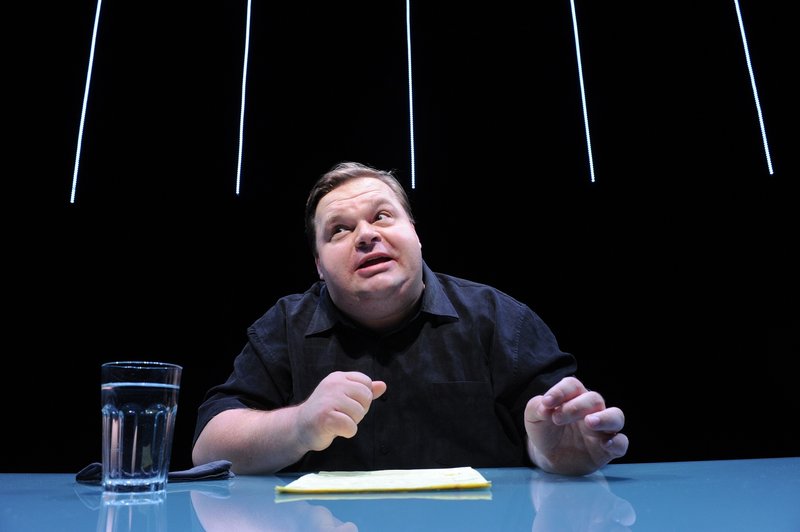CHICAGO – An artist admitted Friday to taking shortcuts in crafting an often harrowing tale about Apple Inc.’s operations in China after the veracity of his one-man theatrical show was challenged by a public radio program that had based a broadcast on his work.
But writer Mike Daisey said he stands by his monologue and called what he does theater, and not journalism.
“It uses a combination of fact, memoir and dramatic license to tell its story, and I believe it does so with integrity,” Daisey said in a statement posted on his website.
Citing what he called “numerous fabrications,” Ira Glass, the host of the popular public radio show “This American Life,” said he could not vouch for the truth of a Jan. 6 broadcast excerpted from Daisey’s critically acclaimed one-man show “The Agony and the Ecstasy of Steve Jobs.”
Later Friday, The New York Times said it had removed a questionable paragraph from the online archive of an op-ed piece Daisey wrote for the newspaper in October.
Daisey also twisted the truth about his time in China during an interview with The Associated Press late last year. Paul Colford, a spokesman for the news cooperative, said the AP was reviewing its coverage of Daisey to determine what corrections will be necessary.
Daisey is currently performing at The Public Theater in New York, which issued a statement saying it stands by what it called “a powerful work of art.”
“Mike is an artist, not a journalist,” the statement said. “Nevertheless, we wish he had been more precise with us and our audiences about what was and wasn’t his personal experience in the piece.”
In his monologue, Daisey describes meeting very young workers who put in very long hours and were forced to do crippling, repetitive motions at factories that make Apple products in China. Some he claimed had been poisoned by a chemical called hexane.
But “This American Life” says a China correspondent for the public radio show “Marketplace” named Rob Schmitz located and interviewed Daisey’s Chinese interpreter, who disputed much of the artist’s claims.
Daisey, in an interview with Glass broadcast as part of Friday’s episode of “This American Life,” admitted that he didn’t meet any poisoned workers and guessed at the ages of some of the workers he met.
“This American Life” said in its statement that staffers asked Daisey for his interpreter’s contact information while fact-checking the story. Daisey replied the cellphone number he had for her didn’t work anymore and he had no way to reach her.
“At that point, we should’ve killed the story,” Glass said. “But other things Daisey told us about Apple’s operations in China checked out, and we saw no reason to doubt him.”
Apple has been rebutting Daisey’s allegations for months, to little effect. The Times also wrote an investigative series in January on dangerous working and living conditions for people who make Apple products in China, including explosions inside factories making iPads where four people were killed and 77 were injured.
An Apple spokeswoman declined to comment Friday. Daisey spokesman Philip Rinaldi said Friday his client was “not speaking to anyone about this right now.”
The original “This American Life” episode, “Mr. Daisey and the Apple Factory,” has become the most popular podcast in the history of “This American Life” with nearly 890,000 downloads.
Daisey also said in an interview with AP last year that he met Chinese workers whose joints in their hands had disintegrated due to repetitive motions.
Copy the Story Link
Send questions/comments to the editors.



Success. Please wait for the page to reload. If the page does not reload within 5 seconds, please refresh the page.
Enter your email and password to access comments.
Hi, to comment on stories you must . This profile is in addition to your subscription and website login.
Already have a commenting profile? .
Invalid username/password.
Please check your email to confirm and complete your registration.
Only subscribers are eligible to post comments. Please subscribe or login first for digital access. Here’s why.
Use the form below to reset your password. When you've submitted your account email, we will send an email with a reset code.